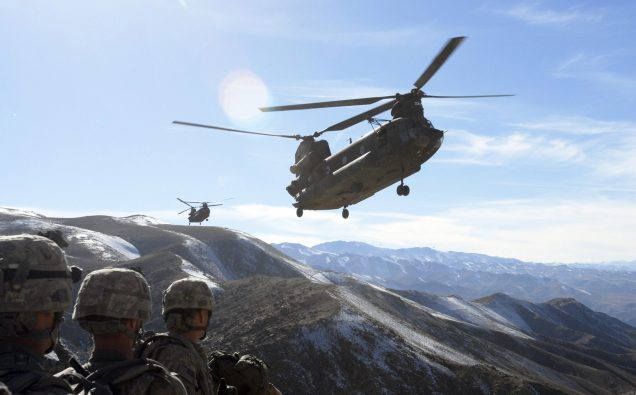
Nearly two decades after the United States invaded Afghanistan – following the 9/11 terror attacks – the U.S. and Taliban have signed an agreement that would allow a full withdrawal of American forces within 14 months if the agreement sees full implementation.
The deal – inked in Doha, Qatar – marks fulfillment of President Donald Trump’s pledge to bring home American troops from the longest overseas conflict in the U.S. history and gives him a foreign policy achievement in the election year.
Pakistan, which played a critical role in pushing the Afghan Taliban insurgent leaders into talks and still hosts millions of Afghan refugees, has called for a responsible draw down of U.S. troops.
Islamabad launched its drive to bring the Afghan Taliban to the negotiating table in response to President Trump’s written request to Pakistan Prime Minister Imran Khan.
Secretary of State Mike Pompeo was among several top officials who attended the signing ceremony in Doha.
President Trump has congratulated all those who worked to make the agreement see light of the day, and said he would be personally meet the Taliban leaders in the not-too-distant future. A White House statement called the agreement a “historic opportunity to forge lasting peace in Afghanistan.”
NEW: "I'll be meeting personally with Taliban leaders in the not-too-distant future," Pres. Trump says following signing of historic agreement that would see U.S. troops start to withdraw from Afghanistan. https://t.co/9YKclid5fP pic.twitter.com/eRgauc3sts
— ABC News (@ABC) February 29, 2020
The U.S. toppled the Taliban government – which hosted al-Qaeda, the perpetrators of 9/11 terror attacks – within days of invading the landlocked country.
After initial success, the U.S. and its allies failed to establish durable peace in the landlocked country. A spate of developments including President George W Bush’s diversion of attention and resources to 2003 Iraq war and President Barack Oabam’s heavy reliance on military force, Taliban regrouping in a sanctuary in Pakistan, and Kabul’s woeful lack of governance, prolonged the conflict.
The Taliban in the last few years gained control of several cities in the south of the country through a fierce insurgency and posed a big challenge to Afghan security forces. The influx of ISIS militants made it a dangerous mix for the already faltering country.
The agreement has given rise to hopes that Afghans may finally see a modicum of stability and peace in the years ahead.
But the Afghan government in Kabul and Taliban will have to sort out a raft of serious differences to pave the way for such transition of the country – from a perennial conflict beginning with Soviet invasion of Afghanistan in 1979 through to 1989, a bloody civil war that festered through the 1990s, and the post 9/11 U.S. led war which lost its way under the weight of mismatching policies and war prosecution under presidents Bush and Obama.
The future will depend as much on implementation of Saturday’s accord as on political will of President Ashraf Ghani-led Afghan government, and ability of mostly Pashtoon speaking Taliban, and ethnic groups including Hazaras and Uzbeks to agree on a power-sharing formula and put well being of the people ahead of narrow temporary gains and work out a political give-and -take.
The agreement represents an opportunity and a test case for Afghans and the U.S.-led international community to ensure that Afghanistan finally embraces peace and stability and work as a center for economic interests of neighboring South Asian and Central Asian countries.
“And we know exactly who we’re dealing with. If the Taliban do not uphold their commitments, President Trump and his team will not hesitate to do what we must do to protect American lives,” Mike Pompeo said in Doha.
“If, on the other hand, the Taliban abide by their promises, the United States will undertake a responsible, conditions-based troop withdrawal. That withdrawal means that our men and women in uniform will incur fewer risks, our financial burden will be eased, and our brave troops will return home.
“This is a hopeful moment, but it’s only the beginning. There is a great deal of hard work ahead on the diplomatic front.”
The story has been updated at 4: 44 p.m. EST

















